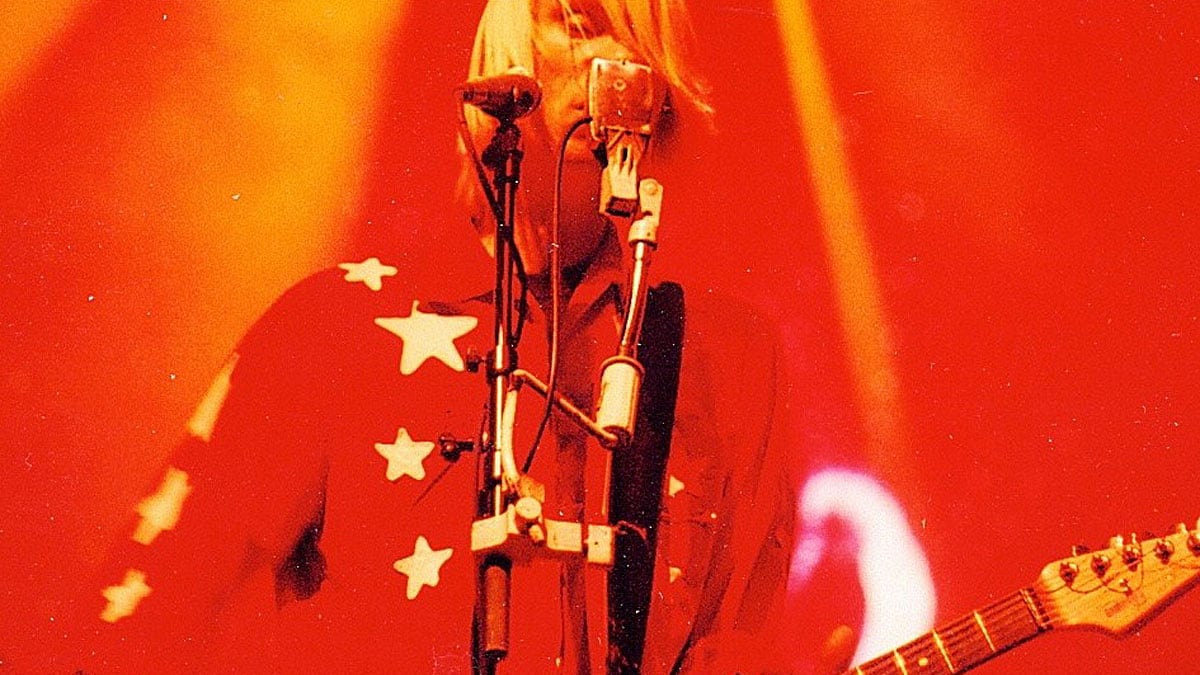Unless you're a film-score nerd, the chances of King Black Acid showing up on your radar in the past 15 years are slim. With the exception of a handful of songs on the soundtrack for the 2002 film The Mothman Prophecies, the self-described "coma-core" project of Daniel John Riddle has been relatively quiet. The choice to fly under the radar rather than capitalize on his closeness to the Pacific Northwest's indie-rock royalty of the '90s may seem bizarre. But when you consider how things turned out for the most high-profile victims of the major-label-driven alt-rock boom, Riddle believes it's the only way he made it out alive.
"I would've been fucking destroyed," he says. "I'm too sensitive and needy. Combine that kind of attention with the money and all that—I totally would've been ruined. I'm pretty much right where I need to be."
As often is the case, Riddle fell into the world of scoring and composing for commercials and film by accident. After moving to Portland from the Bay Area in 1988, Riddle landed a job at the legendary punk venue Satyricon and assumed the role of frontman for the industrial punk act Hitting Birth. Agitated by the disparity between the collective's electrifying live performances and its admittedly subpar recorded material, Riddle began filing away languid, drugged-out psych dirges under the name King Black Acid.
A tape of a live performance in the KBOO studio made its way to Cavity Search Records' Denny Swofford. By the time 1996's Sunlit was released on the seminal Portland indie label, Riddle had solidified his reputation as an insightful composer with a knack for emotionally complex soundscapes. The music might not have been great for '90s alt-rock radio, but it was excellent background for a film's emotional denouement. While hanging out at Ozone Records one afternoon, a customer approached the clerk in search of someone who could quickly record some incidental music for a local commercial to be aired during a Blazers game. Riddle happened to be standing right there. And so went the left turn that steered him in the opposite direction of self-destruction.
Work has been trickling in slowly ever since, with a slew of original pieces and placements for shows like CSI and Buffy the Vampire Slayer keeping the lights on in the Woodstock home Riddle purchased with his wife in 2010. King Black Acid, the band, has been dormant since 2000's Loves a Long Song. But the way his forthcoming three-song EP, Twin Flames, unfolds like a doom country dirge is a clear indicator that Riddle's mind is filled with as much sinister, slow-burning beauty as ever.
"I tried to not play music, and I was just fucking miserable," he says. "I get depressed, and I get up to no good. A lot of shit happened—some it legal, some of it not. I'm obsessive-compulsive, so if I'm not obsessing about something creative then I obsess about shit that's not, and you can tell where that goes for a lot of people: jails, hospitals and death."
With the popularity of shows like True Detective and Stranger Things raising the stakes for ambitious composers with crossover potential, it stands to reason that Riddle could try his hand in L.A. and find success there on his own terms. But he is predictably leery of the Hollywood studio system.
"That would be the worst fucking place in the world I could live," he says. "I do not want to be in the fucking mill. I don't care if I have to go put on my tool belt and go out into the real world the next week. I would rather do that and toil than follow the herd and sound like someone else. If you're trying to keep your shit real and authentic, you'll get thrown out of the mix. It's like a puppy mill run by vampires and pedophiles. I ain't got no time for that shit."
SEE IT: King Black Acid plays Mississippi Studios, 3939 N Mississippi Ave., with Skull Diver and Reptaliens, on Friday, March 3. 9 pm. $12. 21+.
